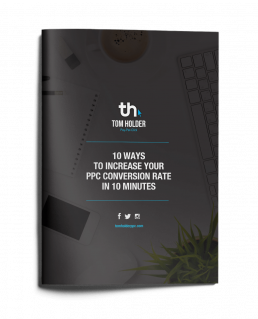“PPC is a short-term solution”. How many times have you
heard that?
It’s one of the most common phrases used to describe PPC, and I continue to hear it regularly as a Google Ads consultant talking to business owners.
I ran a Facebook poll around this recently, in a group made up largely of digital marketing consultants like myself, and the results were quite surprising…

62% of the people labelled PPC and Google Ads as a short-term
solution. If I’d have ran the same poll in an entrepreneurial or business
group, it’s likely that percentage would be up nearer the 85% mark.
The post also prompted replies like “waste of money” which
is a whole other blog post in itself *smh*.
Now I know there is an element of learning and knowledge,
and it’s not as black and white as short or long-term for many businesses, but
we need to shift those percentages and start having conversations and educating
people about long-term PPC strategy.
PPC’s flexibility and measurability rightly makes it
incredibly powerful as a short-term tool. For seasonal events, new product or
service launches, seasonal dates and offers, and even as a testing channel to
aid decisions elsewhere. But thinking, labelling and utilising PPC only as a short-term solution is a
disservice to the platform and the methods, and could mean loss of business,
for your business.
Below is a case study from a retail client of mine, who I’ve
been working with for the past 2 years. Prior to signing the client, we had a
number of meetings and conversations around budget, strategy and how we can
make PPC the most important marketing channel for them.
Strategy
The strategy has been mainly simple. Firstly, restructure
the account to gain some instant wins, reduce wastage and set the foundations to
allow the account to thrive as it matures with optimisation.
Secondly, that optimisation. With all my clients I implement
a consistent and comprehensive optimisation schedule that dives into all
aspects, features and analysis of PPC. These include…
- Budget
management - Bid
management - MoM
and YoY analysis - Device
performance and bid adjustments - Location
performance - Network
performance - Audience
analysis - Ad
scheduling - Conversion
setup and testing - A/B
testing - Keyword
performance - Negative
keyword work - New
keyword themes & exact match keyword addition - Display
remarketing and RLSA - Ad
copy optimisation, utilising USPs and CTAs - Ad
extension optimisation
Results
Q4 2017 vs Q4 2018 (20% Increase In Budget)…
- CPC
dropped 36% - Sales
increased 79% - Revenue
increased 93% - Conversion
rate increased 1% - Sessions
increased 77% - Bounce
rate down 12% - IS
Lost (Rank) reduced 45% - CTR
up 41%
Just because Paid search platforms can give you almost
instant numbers and performance metrics, this doesn’t mean instant results. To
get the best return from PPC, you need time. Time to let your new structure
flourish, time for your optimisation methods to take effect, time to test, time
to make decisions.
Before you go, if you learned something new or you’re leaving with some value from this article, please take a moment to share it across social media, contact me, or drop me a message on any of my google ads consultant social platforms below… Twitter: www.twitter.com/tomholderppc
LinkedIn: www.linkedin.com/in/tom-holder-ppc
Facebook: www.facebook.com/TomHolderPPC
Instagram: www.instagram.com/tomholderppc
FREE DOWNLOAD
10 Ways To Increase Your PPC Conversion Rate In 10 Minutes
Optimisation doesn’t always have to be super complex and lengthy. If your time is limited, don’t write off or devalue the impact of small, focussed optimisation. Completing a few of these concepts every couple of weeks is far more beneficial than a stagnant account receiving optimisation every few months.
Like anything in life, learning and progression, consistent small wins can compound into major improvements over time
